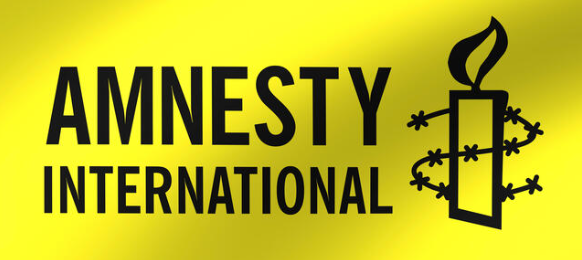The United Nations Security Council must renew its arms embargo on the territory of South Sudan amid the state’s failure to ensure accountability for conflict-related sexual violence (CRSV) and to protect survivors, witnesses, and judicial actors, Amnesty International said Wednesday in a new report.
The report, “If you don’t cooperate, I’ll gun you down”: conflict-related sexual violence and impunity in South Sudan, reveals how CRSV is ongoing in the country, and how guns can be used to facilitate sexual violence. It also reveals how two sections of an action plan that was drafted to address CRSV in the country, adopted by the government in January 2021, are yet to be fully implemented.
On 28 May 2021, the UN Security Council renewed its arms embargo on the territory of South Sudan, which it first imposed in 2018, and identified the implementation of the 2021 action plan as one of five benchmarks against which renewal of the arms embargo would be reviewed in May 2022.
“Amnesty International has documented over a dozen cases of conflict-related sexual violence from recent years, including women who were raped at gunpoint. The UN Security Council must therefore renew its arms embargo on the territory of South Sudan,” said Deprose Muchena,
Amnesty International’s Director for East and Southern Africa.
“Our new report highlights the urgent need for thorough, independent, and impartial investigations into these crimes. The perpetrators of conflict-related sexual violence must face justice; widespread impunity for these offenses must come to an end,” he added.
According to Amnesty International, CRSV survivors revealed that they were raped by a wide range of individuals, including government soldiers; a member of the National Security Service (NSS); members of the Sudan People’s Liberation Movement-in-Opposition (SPLM-IO) – the main armed opposition group – the National Salvation Front (NAS) – a non-state armed group that refused to sign the 2018 peace deal; armed men; “rebels”, and unarmed men; including teenage boys.
The report says that three survivors said they were abducted and made to carry out forced labor or used as sex slaves for between two and four years. Three survivors told Amnesty International that they gave birth after being raped. Angelina (not real name) said that in February 2022, government soldiers came to her house at night and demanded she come outside. When she did, they raped her. “When the first one was done, the second started. When the second finished, the first one came back,” she said.
Conflict-related sexual violence often goes underreported, especially when it involves male survivors. Jacqueline, a survivor of conflict-related sexual violence, said she saw armed men rape her male neighbor in late 2018. She said: “[They] undressed him, [told him] that he should squat down. When he kneeled down, they started raping him from behind.” According to Jacqueline, the man later hung himself.
“The South Sudan authorities must urgently address these cases of conflict-related sexual violence. Their response must be rooted in survivors’ medical, psychological and socio-economic needs. It must also address root causes of the violence and include survivors in decision-making on matters that affect them,” said Deprose Muchena.
The report says that nine survivors of CRSV told Amnesty International that their perpetrators raped them at gunpoint and threatened to kill them or their relatives with their gun if they did not comply. Gloria*, who was raped at gunpoint in 2016 said she encountered five armed men, and that: “The soldier asked me to choose whether I will have sexual intercourse with you, or I will kill you and your children all.”
Human rights defenders in South Sudan support the renewal of the arms embargo as a measure to reduce human rights violations and abuses, including rape and killings of civilians. One women’s rights defender said: “The more weapons [South Sudanese] have, the more violations…the gun is their strength to rape women.”
According to the report, despite hundreds of CRSV cases documented by the United Nations, Amnesty
International and others over the last decade, prosecutions of suspects of conflict-related sexual violence remain rare amid widespread impunity.
“Amnesty International opposes the use of South Sudanese military courts to deal with serious human rights violations against civilians because they do not meet fair trial standards,” the statement read. “They lack independence, in part because the president has veto power over verdicts and sentences passed by Court Martials.”
The rights organization called on the South Sudanese authorities to establish the Hybrid Court for South Sudan which is committed to in the 2015 and 2018 peace deals. It also calls on the government to suspend any officials reasonably suspected of ordering, committing, or facilitating violations of international humanitarian law, including acts of sexual violence, until an effective, independent and impartial investigation has been carried out.




